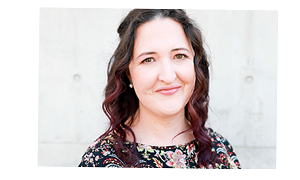In a week where Senator David Pocock has sought to introduce a bill seeking to remove 1% cap on broadcast sound recordings, with an immediate frustrated response from the CRA and musicians, both Spotify and Apple Music have also released new functions to try and draw more of us away from traditional radio.
Spotify’s AI-powered DJ feature is now available to Australian premium customers, along with their new $1 monthly subscription increase.
They say:
“It will sort through the latest music and look back at some of your old favorites—maybe even resurfacing that song you haven’t listened to for years. It will then review what you might enjoy and deliver a stream of songs picked just for you. And what’s more, it constantly refreshes the lineup based on your feedback.
If you’re not feeling the vibe, just tap the DJ button and it will switch it up. The more you listen and tell the DJ what you like (and don’t like!), the better its recommendations get. Think of it as the very best of Spotify’s personalization—but as an AI DJ in your pocket.”
Those who use Spotify already will know that it will contribute songs already to a playlist that are similar to the genres and artists you have liked or are listening to.
This AI DJ takes this one step further. Using a voice model apparently based on Xavier “X” Jernigan, Spotify’s head of cultural partnerships, it adapts and tailors playlists to your individual tastes with personalised, generative AI commentary.
Apple surprised everyone this week with the quiet launch of Discovery Station, a new personal radio station.
The biggest difference between the two platforms is that Apple has not (yet) incorporated the same algorithmic music selection functions that Spotify does. But perhaps Discovery Station is the start.
Unlike Spotify’s AI DJ, there are no further details on the Apple website about the product, but keen insiders discovered that if you ask Siri to “play music that I like,” the station appears and plays songs based on history, likes, and other factors as well as new music that Apple’s algorithm’s suggest you might enjoy too.
Another of my jobs is as a freelance writer for BMA Magazine which features music, concerts, live events in and around Canberra. Last year was pretty good for Australian music as people were prepared, after a long period of being unable to, to spend on live and local acts.
2023 is different. Firstly, with interest rates, petrol and the cost of living all markedly increasing, we are spending less on this “luxury”.
Secondly, if you had $1000 you are prepared to spend on going out and seeing music this year, and you bought tickets in the mad Taylor Swift frenzy a month or so ago, plus accommodation, parking and food factored in, that’s your $1000 gone on one gig.
And finally, except for Swift, where everyone had to get the tickets NOW, we are waiting till last minute to purchase local and much, much cheaper events.
We want to know how we’re feeling first.
There’s no pressure to get in early.
I’m hearing from musicians on tenterhooks because they haven’t sold nearly enough tickets to break even a week before their gigs and so they, or the venue, pull the pin. I’ve had this happen twice.
Spotify and Apple further drawing people away from traditional radio consumption is one threat to the broadcast industry.
While I certainly agree that our local artists should receive what they deserve from commercial radio and ABC airplay, my fear is that the removal of the 1% cap will reduce the diversity of the Australian music we hear played, as stations stick more rigidly to quotas to avoid additional costs and Oz music features are abandoned due to being too expensive.
More new acts will target TikTok, Apple Music and Spotify exclusively and forego effort towards radio exposure altogether.
It’s interesting times indeed.


